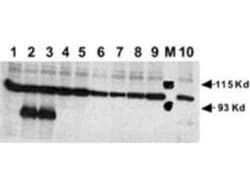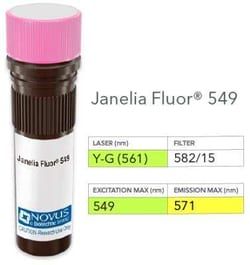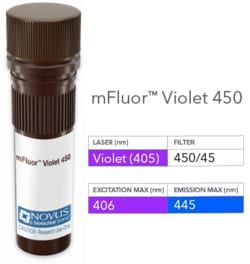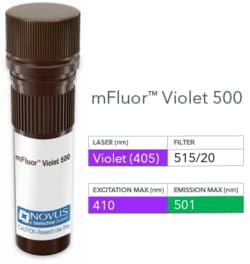Ornithine Decarboxylase Antibody (ODC1/485), Alexa Fluor™ 750, Novus Biologicals™
Manufacturer: Novus Biologicals
Select a Size
| Pack Size | SKU | Availability | Price |
|---|---|---|---|
| Each of 1 | NP23470A750-Each-of-1 | In Stock | ₹ 57,494.00 |
NP23470A750 - Each of 1
In Stock
Quantity
1
Base Price: ₹ 57,494.00
GST (18%): ₹ 10,348.92
Total Price: ₹ 67,842.92
Antigen
Ornithine Decarboxylase
Classification
Monoclonal
Conjugate
Alexa Fluor 750
Formulation
50 mM sodium borate with 0.05% sodium azide
Gene Symbols
ODC1
Immunogen
Recombinant full-length human Ornithine Decarboxylase protein (Uniprot: P11926)
Quantity
0.1 mL
Primary or Secondary
Primary
Test Specificity
Recognizes a 53kDa protein, identified as the Ornithine Decarboxylase (ODC-1). ODC is the initial and rate-limiting enzyme in the biosynthetic pathway of polyamines and is involved in the conversion of ornithine to putrescine. The biological activity of ODC-1 is rapidly induced in response to virtually all agents known to promote cell proliferation including hormones, drugs, growth factors, mitogens, and tumor promoters. Reportedly, ODC mRNA levels are elevated in lung carcinomas as well as in colon adenomas and carcinomas. ODC activity in colorectal carcinomas is greater than those in adenomas and normal mucosa.
Content And Storage
Store at 4°C in the dark.
Applications
Western Blot, Flow Cytometry, ELISA, Immunohistochemistry, Immunocytochemistry, Immunofluorescence, Immunohistochemistry (Paraffin)
Clone
ODC1/485
Dilution
Western Blot, Flow Cytometry, ELISA, Immunohistochemistry, Immunocytochemistry/Immunofluorescence, Immunohistochemistry-Paraffin, Immunohistochemistry-Frozen
Gene Alias
ODCEC 4.1.1.17, ornithine decarboxylase, ornithine decarboxylase 1
Host Species
Mouse
Purification Method
Protein A or G purified
Research Discipline
Cell Cycle and Replication
Gene ID (Entrez)
4953.0
Target Species
Human, Rat
Isotype
IgG1 κ
Description
- Description Ornithine Decarboxylase Monoclonal specifically detects Ornithine Decarboxylase in Human, Mouse, Rat samples
- It is validated for Western Blot, Flow Cytometry, Immunohistochemistry, Immunocytochemistry/Immunofluorescence, Immunohistochemistry-Paraffin.






